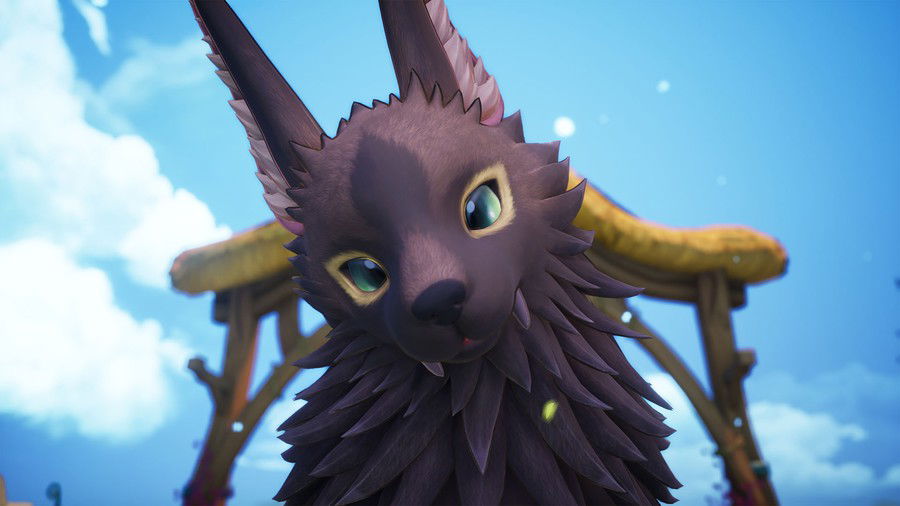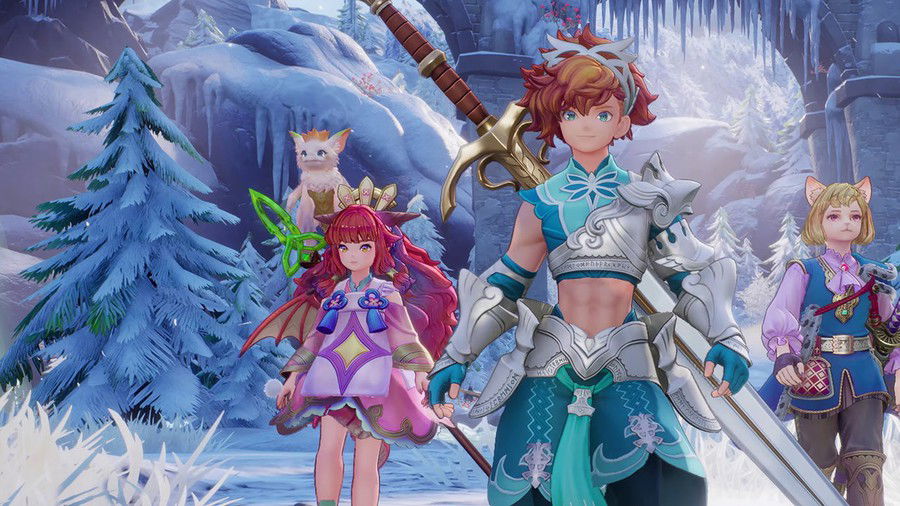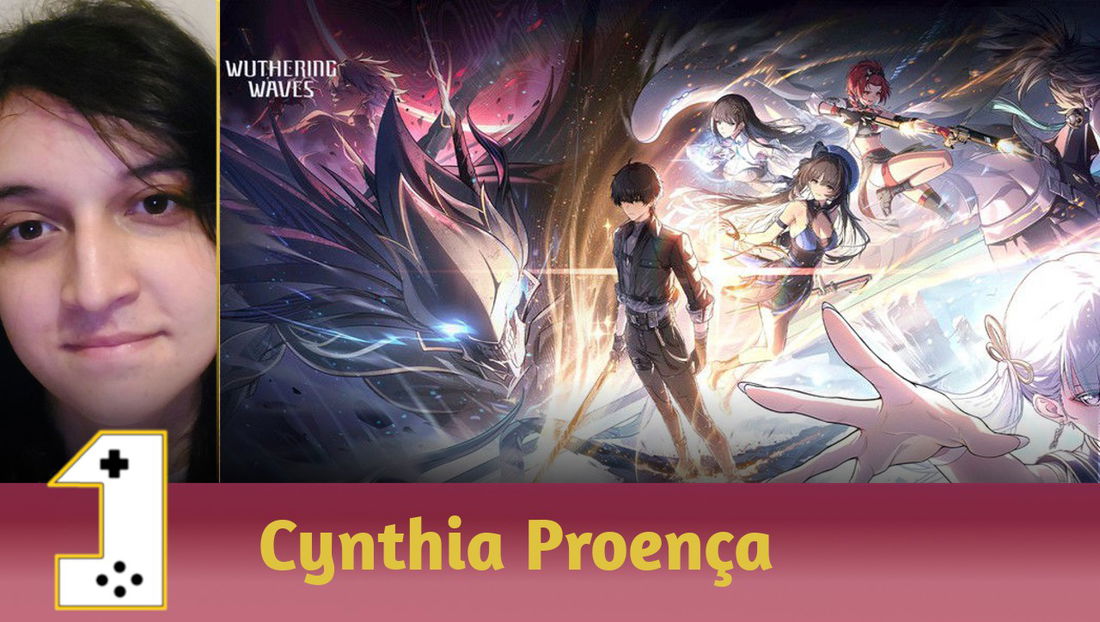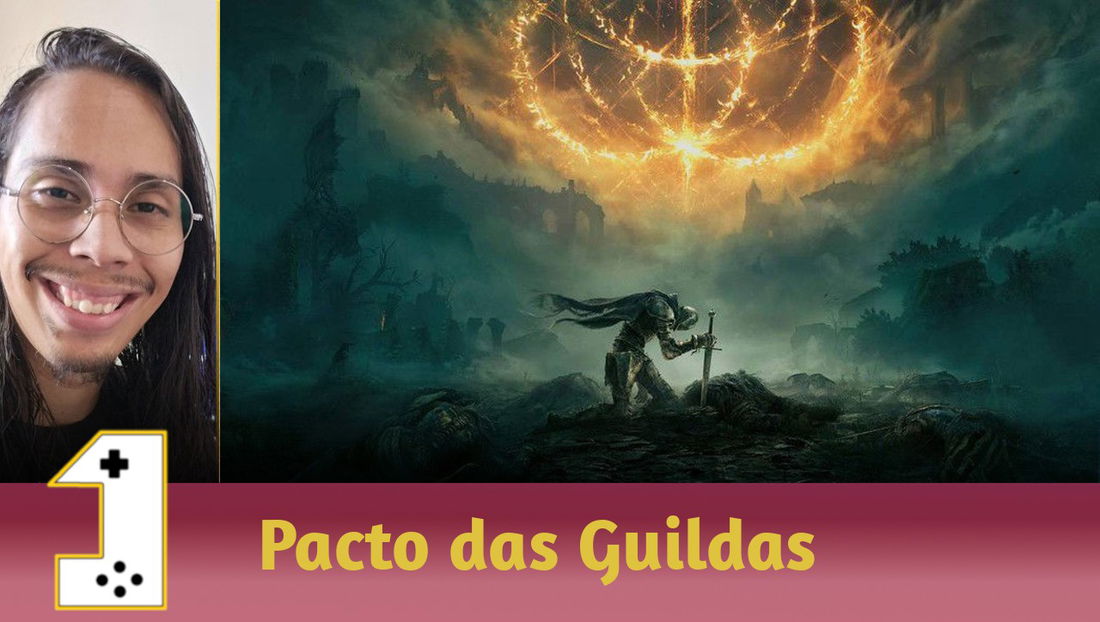The Mana series is one of the golden jewels of the 90s gaming era. Originally started as a Final Fantasy spin-off, the franchise gained its own identity with Secret of Mana, released in 1993 and with a remake released in 2018.
Since then, the series has established itself with a number of titles across generations, the most famous of which is Legend of Mana, for PlayStation One, where players shaped their adventure as they discovered new cities and dungeons, with total control over their layout on the map and a customizable combat system with several weapons available.
At first glance, the new game in the series, Visions of Mana, doesn't have the same freedom in narrative construction as the most famous work in the series, but it combines recurring themes with an engaging class system, making it a potential notable release in the Adventure and Action RPG genres in 2024.
First Impressions of Visions of Mana
Visions of Mana follows the adventure of Val, a young man from the village of Tianeea. The protagonist becomes the guardian of his childhood friend, Hinna, and accompanies her on a pilgrimage to the Tree of Mana. We are introduced to two other characters in the demo: Morley, a cat-man whose story we learn a little more about, and Careena, a half-human, half-dragon accompanied by her best friend, the little dragon Ramcoh.
Together, this group travels through snowy regions to reach the vast plains of Illystana, and from there go to the Rhata harbor, where they must take a ship. In just over an hour of gameplay (which can be up to two or a bit more if we explore every detail instead of focusing on the main story), Visions of Mana presents a light narrative, a typical classic adventure in a colorful, magical and dangerous semi-open world.
An Adventure for Everyone
From the very first minute, the demo presents a world with very striking palettes, even in the snowy regions where we are inserted, with stylized characters and very colorful clothes, as well as intriguing details in the coloring of the eyes, and as we explore the map, it gains even more colors: the vivid green of the plains that contrasts well with the brown of the mounts or the blue of the sky, the shades of blue of the leaves of the trees fitting in harmony with the environment and with the NPCs.
It all seems very magical, and it should be: the Mana series is known for bringing this more colorful and light touch to RPGs even when its story arcs are intense, and Visions specifically brings this air of “great journey” or “an unforgettable adventure”, but with the necessary lightness even when it addresses, for example, human greed.

Its lightness is also reflected in the dialogues, with a more childish tone and less focused on long and more complex statements. Each sentence sounds very objective, clear, clean and without nuances, aimed at a younger audience and without fear of seeming “too silly” for adults. Its graphics and creature design, many with recurring elements from the series, also reflect the intention of attracting this audience and placing Visions of Mana in the role of “a game for almost everyone”, given that its age rating still points to mild suggestive themes and fantasy violence.
Class System seems promising
The Class System is one of the game's biggest attractions. In it, playable characters and/or characters used by the AI can change their role and combat styles by transforming into different classes accessed through the main menu. In the demo, we have a few options available to try out, and most of them bring a new proposal for the character.

Clothing, equipment, and weapons also change with the classes and can add several layers of customization possible to the team and diversify the gameplay styles for each player based on their personal taste; whether they prefer heavier and slower attacks, or a more agile character who needs to get close to enemies, or something more focused on ranged attacks.
We don't yet have a complete idea of the scope that the Class system can have in Visions of Mana, but of all the elements presented in the demo, it has the greatest potential for growth and innovation, even allowing the search for an ideal "party" with specific combinations of classes for each challenge.
Exploration doesn't innovate, but it's comfy
Exploring the map is quite fun: there are items to collect, treasures to be found and enemies along the way to fight and gain experience. It's the classic feeling that a semi-open world RPG gives players, and it doesn't differ greatly from other titles comparable to Visions of Mana in terms of both gameplay and artistic direction, and has some special touches that are not exclusive to the series but are very welcome, such as the use of the jump and push buttons to reach new places and/or overcome some obstacles.

The demo's Side Quests sound a bit generic, but they follow the classic pattern that RPGs have adopted for over a decade: defeating monsters, collecting items, talking to characters, among other tasks that offer very common rewards, such as items or money.
There are those who hate this quest pattern and feel that they are a “sandbox” of the current generation, but in the sense of a comfortable game and introduction to the genre, as this one proposes, these quests help to get used to having other activities, and for a more casual audience, it is good to have this type of content.
Combat needs improvement
Like exploration, Visions of Mana's combat follows a common pattern of Action RPGs, with a control scheme for attack and movement while having shortcuts and bars to be used to make everything more fluid.
In theory, this system works perfectly well and has all the necessary elements to create gameplay variety and make players adapt the controls and commands the way they prefer, but in practice, it needs some improvements.
Despite being intuitive, the system for using magic and resources is not predictable at first glance, as is the use of medium and strong attacks, with some requiring a certain timing to work and/or missing the target because they take too long to charge. The basic attacks of some classes also seem too slow to keep up with the pace proposed by some enemies.
Another problem is the camera, which even with “Lock” activated, does not follow your target and forces you to constantly move to reach it. Combat also has issues in movement: the time it takes a character to perform an action and/or the need to get too close to the enemy because automatic attacks don't advance towards them, while we need to pay attention to our surroundings because other enemies can attack you from other sides, creates some notoriously awkward moments.
The NPCs also have the common, but unpleasant, fault of spending resources when they are not necessary. It is likely that there are settings in the full game menu to define how your characters should behave and prioritize during battles, but in the demo, resource management can be compromised by the AI's lack of conservation over them, added to the confusing camera that made the playable character spend too much time on one enemy before moving on to the next.
This doesn't mean that the combat is made up of only flaws: it's fun when it works, the mix of aerial attacks and characters sharing one or more targets create some rewarding sequences, but there are points where the game needs some quality of life improvements to make the gameplay more enjoyable.
Conclusion
Visions of Mana seems to know very well what it wants to be and presents itself as such: a comfy story, made for all types of audiences and without being too ambitious in anything, like a cozy game ideal for fans of both adventure and RPGs, whether for their leisure time or to play at home with their children.
The game has potential, the characters are charismatic and the world, with graphics from the current generation of consoles, is beautiful and with captivating color palettes that bring nostalgia to those who have played other games in the series and fascination to those who have never experienced an RPG before.

It's built to appeal to a wide range of audiences, from the youngster who just got a new console from their parents to the longtime JRPG fan who might be interested in a Mana title, but for the sake of its critical and commercial reception upon release, some quality-of-life improvements need to be made to the combat to make it more fluid and avoid the same pitfalls we've seen with other games in its genre.
Visions of Mana is scheduled for release on August 29, 2024, and will be available for PlayStation 4, PlayStation 5, Xbox Series, and PC.
Thanks for reading!












— 코멘트 0
, 반응 1
첫 댓글을 남겨보세요